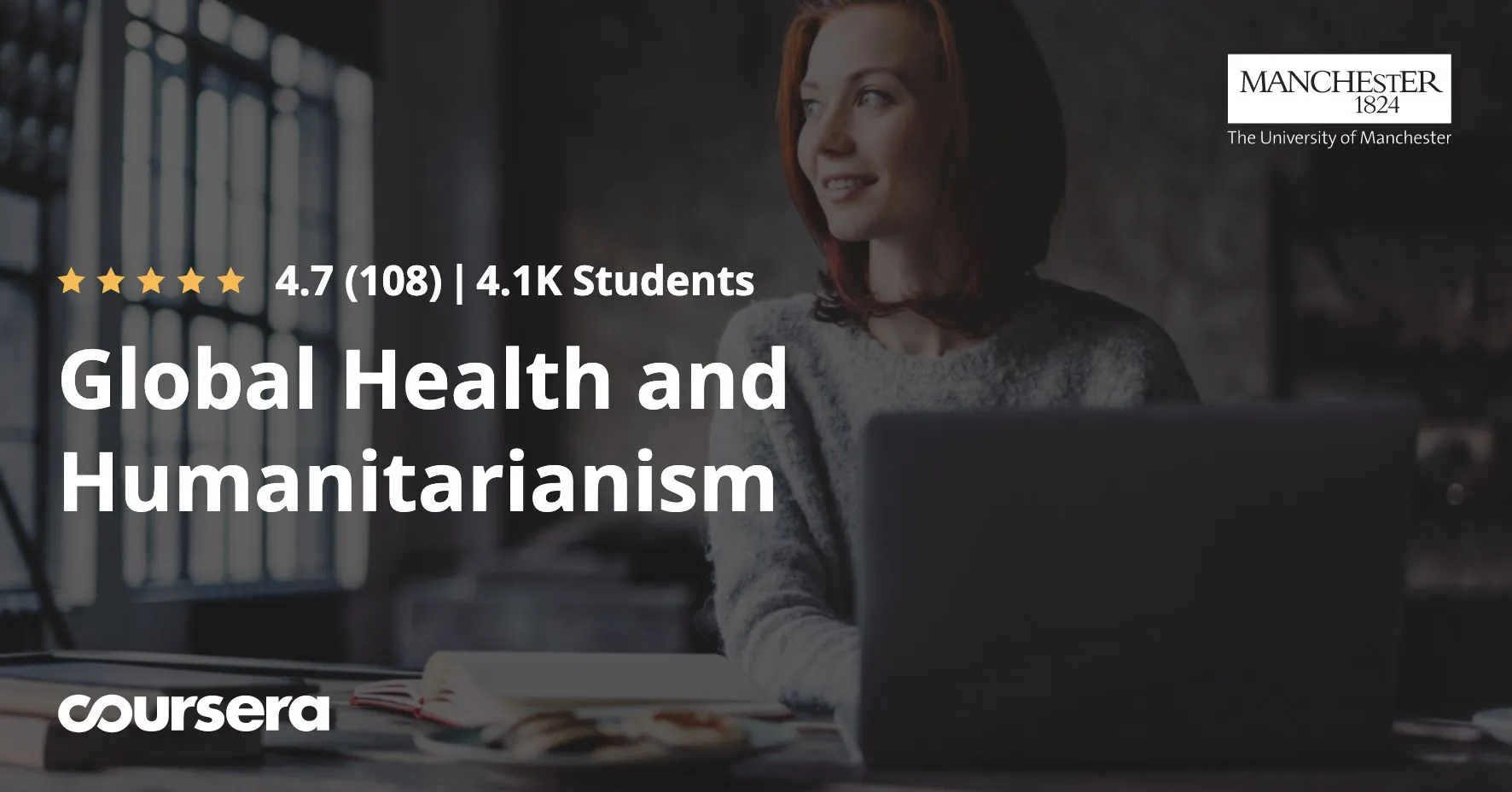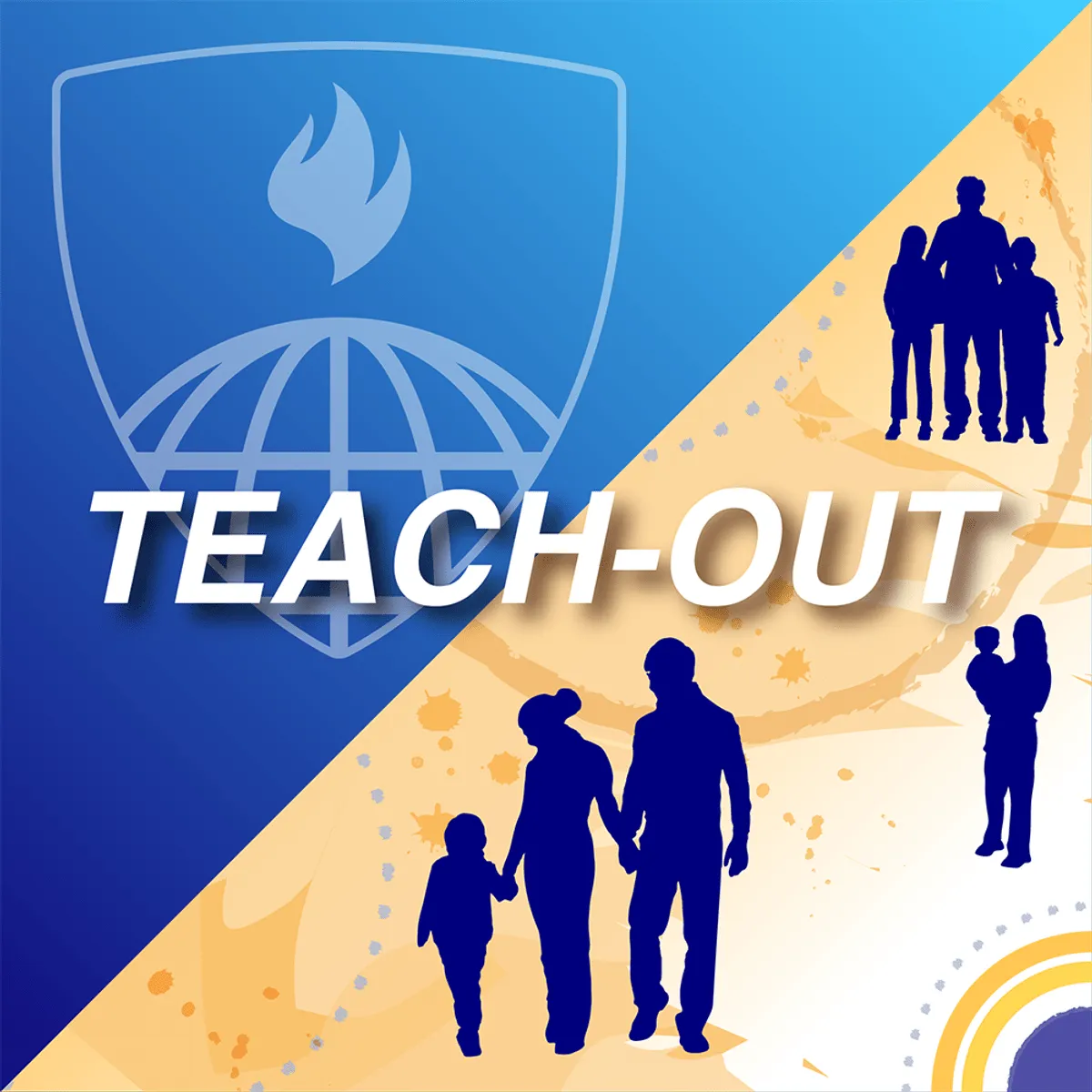
Global Health and Humanitarianism 
This MOOC provides an introduction to global health and humanitarianism, exploring the challenges and opportunities of providing healthcare in a global context. Join us for six weeks of engaging content and discussion. ▼
ADVERTISEMENT
Course Feature
![]() Cost:
Cost:
Free
![]() Provider:
Provider:
Coursera
![]() Certificate:
Certificate:
No Information
![]() Language:
Language:
English
![]() Start Date:
Start Date:
Self Paced
Course Overview
❗The content presented here is sourced directly from Coursera platform. For comprehensive course details, including enrollment information, simply click on the 'Go to class' link on our website.
Updated in [March 06th, 2023]
This Global Health and Humanitarianism MOOC provides learners with an introduction to global health and humanitarianism. Learners will gain an understanding of the concept of global health, the perspectives of global health, and the equity of access to healthcare. They will also learn about maternal healthcare and the role of the International Federation of Red Cross and Red Crescent Societies (IFRC) in global health and humanitarianism. Through this course, learners will gain an understanding of the importance of global health and humanitarianism, and the role of the IFRC in providing healthcare to those in need. They will also gain an understanding of the challenges faced in providing healthcare to those in need, and the strategies used to address these challenges. Finally, learners will gain an appreciation of the importance of global health and humanitarianism, and the role of the IFRC in providing healthcare to those in need.
[Applications]
Upon completion of this course, participants are encouraged to apply the knowledge and skills acquired to their own work in global health and humanitarianism. They can use the concepts and principles discussed to inform their own research, advocacy, and policy-making. Additionally, they can use the course to develop a deeper understanding of the challenges and opportunities in global health and humanitarianism, and to develop strategies to address them.
[Career Paths]
1. Global Health Program Manager: Global Health Program Managers are responsible for developing, implementing, and managing global health initiatives. They work with local and international partners to ensure that health programs are effective and sustainable. They also work to ensure that health programs are equitable and accessible to all populations. As the global health landscape continues to evolve, Global Health Program Managers must stay up-to-date on the latest trends and developments in the field.
2. Humanitarian Aid Worker: Humanitarian Aid Workers provide assistance to people affected by natural disasters, armed conflicts, and other crises. They work to provide relief to those in need, including food, shelter, medical care, and other essential services. Humanitarian Aid Workers must be able to work in challenging and often dangerous environments, and must be able to adapt to changing conditions. As the number of natural disasters and other crises continues to increase, the demand for Humanitarian Aid Workers is expected to grow.
3. Global Health Policy Analyst: Global Health Policy Analysts are responsible for researching and analyzing global health policies and programs. They work to identify gaps in existing policies and develop strategies to address them. They also work to ensure that global health policies are equitable and accessible to all populations. As the global health landscape continues to evolve, Global Health Policy Analysts must stay up-to-date on the latest trends and developments in the field.
4. Public Health Educator: Public Health Educators are responsible for educating the public about health issues and promoting healthy behaviors. They work to create and implement health education programs that are tailored to the needs of their target audiences. They also work to ensure that health education programs are equitable and accessible to all populations. As the global health landscape continues to evolve, Public Health Educators must stay up-to-date on the latest trends and developments in the field.
[Education Paths]
1. Bachelor of Science in Global Health: This degree program focuses on the study of global health issues, such as infectious diseases, nutrition, environmental health, and health disparities. Students learn about the causes and effects of global health problems, and develop strategies to address them. This degree is becoming increasingly popular as the world becomes more interconnected and global health issues become more pressing.
2. Master of Public Health: This degree program focuses on the study of public health, which is the science of protecting and improving the health of communities through education, policy, and research. Students learn about the principles of public health, epidemiology, health promotion, and health policy. This degree is becoming increasingly important as public health issues become more complex and global.
3. Doctor of Public Health: This degree program focuses on the study of public health, with an emphasis on research and practice. Students learn about the principles of public health, epidemiology, health promotion, and health policy. This degree is becoming increasingly important as public health issues become more complex and global.
4. Master of Science in Global Health: This degree program focuses on the study of global health issues, such as infectious diseases, nutrition, environmental health, and health disparities. Students learn about the causes and effects of global health problems, and develop strategies to address them. This degree is becoming increasingly popular as the world becomes more interconnected and global health issues become more pressing.
Course Syllabus
Video 2.1: Week 2 Introduction
Video 2.2: The Spread of Disease (including League of Nations Case Study)
Video 2.3: Case Study: Pandemic Influenza Outbreak, WW1
Video 2.4: Origins of Global Health
Video 2.5: GH Non Communicable Diseases
Pros & Cons

Informative, covers key topics, provokes independent thinking, different perspectives, excellent lecturers, helpful materials, creative, interesting information, frank discussions, stimulates deep thinking.

None mentioned.
Course Provider

Provider Coursera's Stats at AZClass
Discussion and Reviews
0.0 (Based on 0 reviews)
Explore Similar Online Courses

Introduction to Home Ownership and Mortgages

Running Product Design Sprints

Python for Informatics: Exploring Information

Social Network Analysis

Introduction to Systematic Review and Meta-Analysis

The Analytics Edge

DCO042 - Python For Informatics

Causal Diagrams: Draw Your Assumptions Before Your Conclusions

Whole genome sequencing of bacterial genomes - tools and applications

Healthy and Sustainable Foods

Helping Families Avoid Negative Court Involvement Teach-Out

Antibiotic Stewardship
 Related Categories
Related Categories
 Popular Providers
Popular Providers
 Popular Searches
Popular Searches
Quiz
 Submitted Sucessfully
Submitted Sucessfully
1. What is the main focus of Global Health?
2. What is the International Federation of Red Cross and Red Crescent Societies (IFRC)?
3. What is the main goal of the IFRC?
4. What is the acronym for the International Federation of Red Cross and Red Crescent Societies?
Correct Answer: IFRC


Start your review of Global Health and Humanitarianism